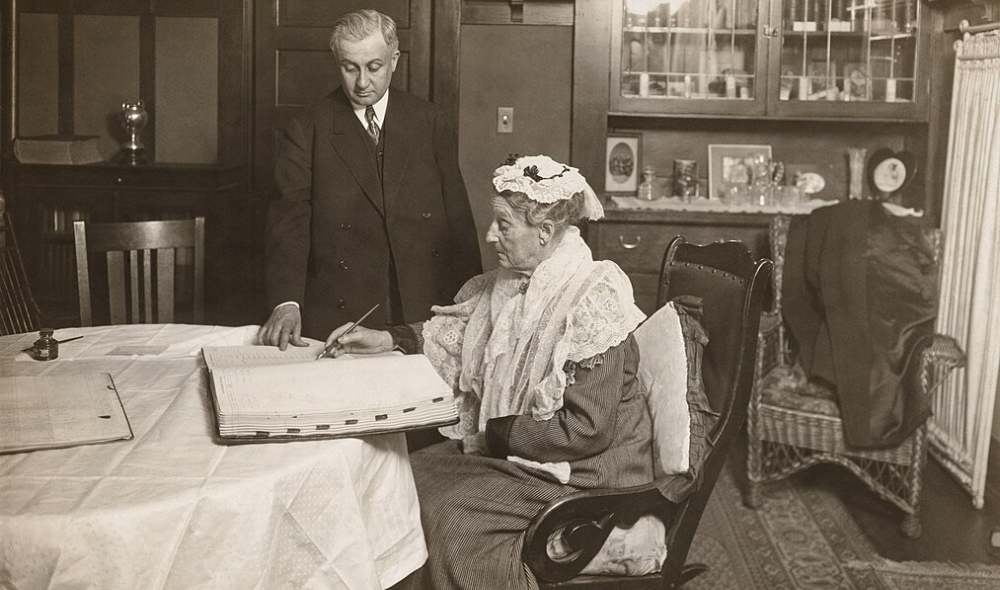It’s not generally known that the first champion of women suffrage in Washington State was a man – Seattle’s founder, Arthur A. Denny. In 1854 Denny introduced a suffrage bill in the first Territorial legislature. It lost by one vote.
During the 1860s and ’70s several women picked up Denny’s issue, especially Susan B. Anthony, who also addressed the Olympia legislators. Her rhetoric fell on unsympathetic ears.
Locally, Abigail Scott Duniway served as both beacon and clearing house for the suffrage movement, and doubled as Mrs. Anthony’s business agent. Duniway, a native of Oregon, had established a feisty woman’s rights newspaper called the “New Northwest.” Her job was to sell subscriptions.
Following Susan B. Anthony’s tour of the Pacific Northwest, and Duniway’s active hobnobbing on her behalf, Duniway inherited the mantle of Star Suffragette in Washington Territory. Perhaps Duniway’s most lasting contribution was to help found the Washington Woman Suffrage Association in Olympia, 1871.
Whatcom County legislator Edward Eldridge introduced another suffrage bill in1873. Mrs. Duniway, her paper’s editorials, and her five sons, all cheered loudly. They also lobbied relentlessly, but the bill failed. A similar bill died in 1875. One small victory was salvaged from the political ashes: Washington women, in 1881, were given the right to own and dispose of property, to sue, and to convey and inherit community property.
Unsurprisingly, newspaper accounts of that time were often critical of Duniway’s tactics. She was not to be put off, however. She described her efforts as “genial conversation and pleasant repartee,” though several male legislators with whom she met did not find the experience that genial.
In 1883 a suffrage bill passed, and Territorial Governor William A. Newell signed a bill. What happened next was a curious chapter in Washington state’s – and the nation’s – history. The Woman’s Suffrage Movement got mixed up with Temperance forces. Women were soon blamed for Prohibition victories in local elections. Mrs. Duniway backed away from the Temperance issue, allegedly to preserve her hard-fought and narrow Suffrage successes, and thereby found herself persona non grata with many women activiists.
The Territorial Supreme Court then voided the Suffrage Act. Prohibition/Suffrage issues became so hot and inter-mixed that the 1889 Constitutional Convention, anticipating statehood, omitted Woman’s Suffrage in the Constitution.
When the machinery started up again for Suffrage in 1906-1910, Duniway was left out. Many of her male opponents were pleased, and her former female allies didn’t care — after all, she had abandoned Prohibition. Other leaders such as Emma Smith Devoe of Tacoma and Spokane’s May Arkwright Hutton led the troops in a new battle.
Woman’s Suffrage was eventually won in a statewide election. The balky state Legislature was bypassed by a 1910 Amendment to the state Constitution, and all 38 Washington counties approved. The Prohibitionists remained quiet, so as not to inflame the issue. Six other states followed the example of Washington in approving suffrage laws during the next three years.

Wonderful reading!
Thank you for this column about our state’s on-again, off-again, legislative indecision in granting women legal rights as full citizens.